“There are no gardening mistakes, only experiments.”
Those wise words from gardening expert Janet Kilburn Phillips are fitting as we are proud to share updates from our vegetable garden. Just look at beaming Widley and his recent spring harvest.
The vegetable garden at Have Faith Haiti grows lettuce, basil, cilantro, aloe, carrots, lettuce, onions, beans, peppers and zucchini.
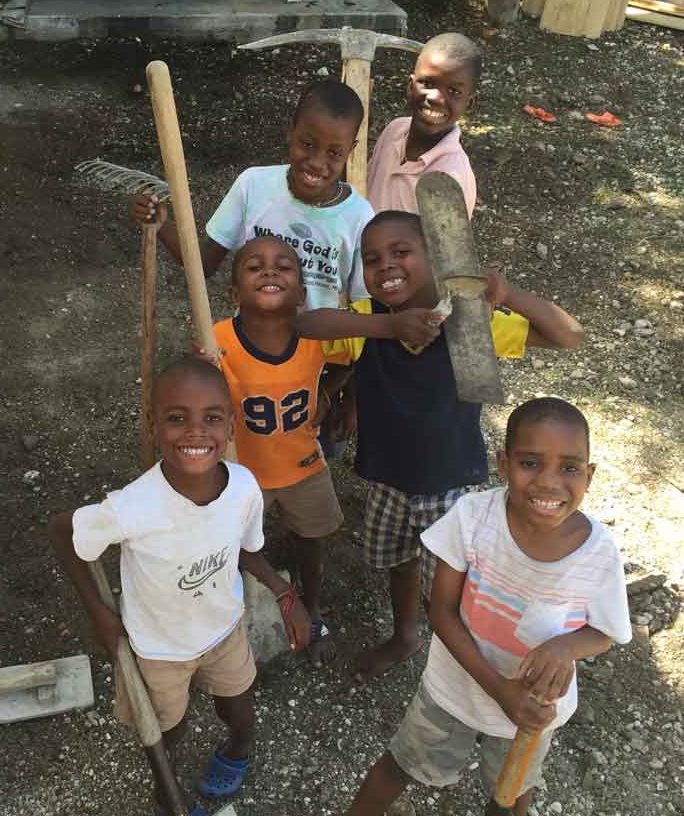 Miss Gina and the kids built the garden beds together, marking the first gardening project at the Mission. While students including Enolyka, Cinlove, Gina, Josue, JU, Esterline, and Lengee are in the rotation to maintain a garden bed, Louvenson and Widley have particularly taken to tending the garden and have insisted on taking responsibility for a garden bed each.
Miss Gina and the kids built the garden beds together, marking the first gardening project at the Mission. While students including Enolyka, Cinlove, Gina, Josue, JU, Esterline, and Lengee are in the rotation to maintain a garden bed, Louvenson and Widley have particularly taken to tending the garden and have insisted on taking responsibility for a garden bed each.
It’s been a long road of patience, and learning from mistakes. With trial and error, and with each hurdle, the gardening team has learned and gotten smarter.
Lesson #1: Nutrients are Important
The beds were first installed in the fall of 2016. In school, the kids were also learning about the parts of plants and monitoring the plant growth helped our studies. But nothing sprouted at first! The garden needed composted soil to help the seeds sprout and thrive. The organic matter in composted soil releases vital nutrients into the soil and helps build the right soil consistency for air, water, and energy to pass through.
Lesson #2: Provide Cover
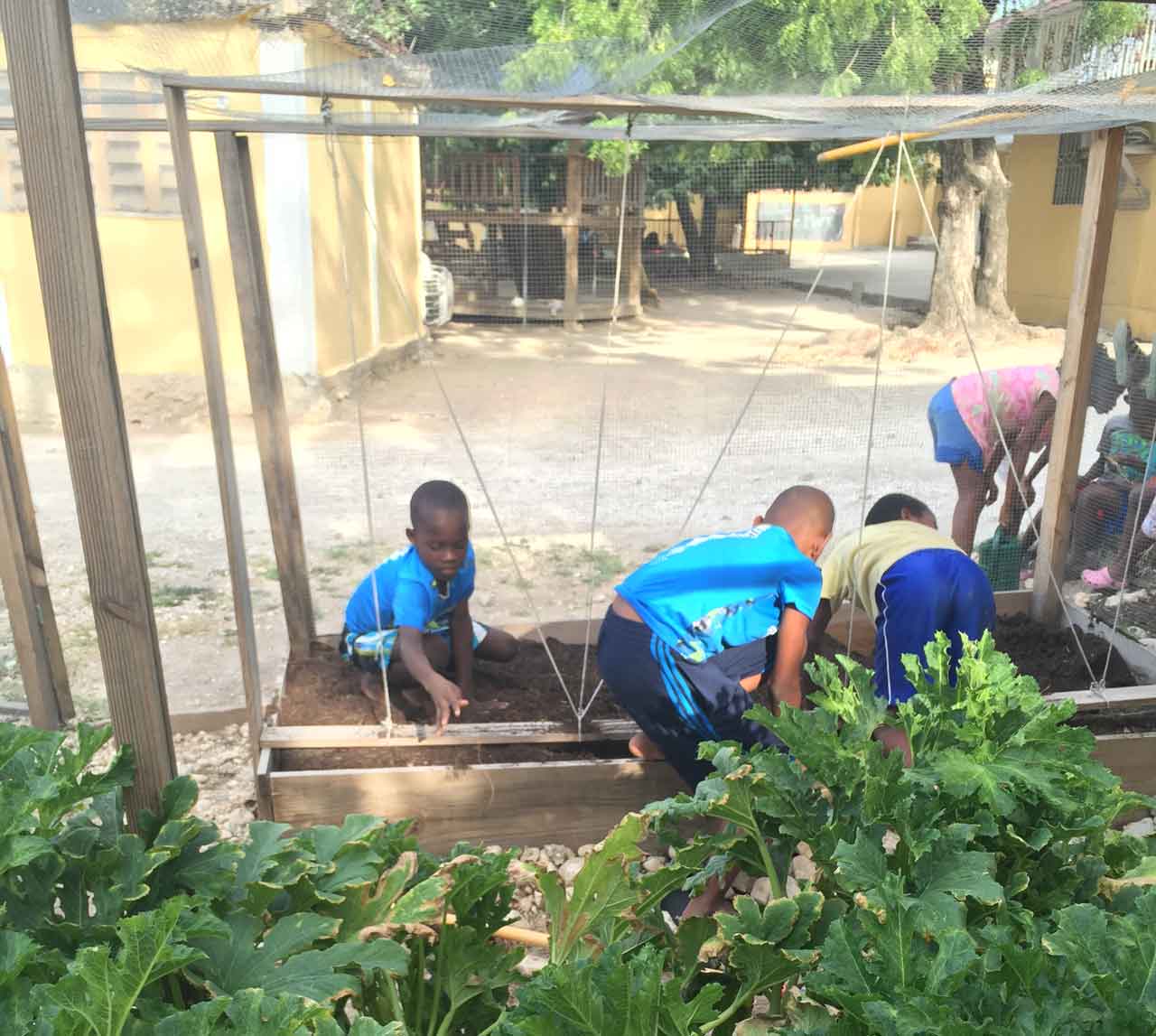 When the seeds finally did sprout, they were eaten by rats! An enclosure was built to keep away the rodents, and keep all planting strictly within where it’s best protected from the elements. With such a severe climate, the garden must be watered twice a day from the reservoir, filled weekly with purchased water. (There is no water/sewage system in Haiti). They will soon be collecting natural rain fall to make the garden even more self-sustainable.
When the seeds finally did sprout, they were eaten by rats! An enclosure was built to keep away the rodents, and keep all planting strictly within where it’s best protected from the elements. With such a severe climate, the garden must be watered twice a day from the reservoir, filled weekly with purchased water. (There is no water/sewage system in Haiti). They will soon be collecting natural rain fall to make the garden even more self-sustainable.
Lesson #3: Get Immunized
After conquering the issues of nutritious soil and rodent infestations, the plants would grow but develop diseases due to small pests. Natural pesticides helped reduce the incidence of leaf miners, which caused a white fungus to grow. Lettuce master Widley explained his process for quality control:
Lesson #4: You Need Room to Grow
Carrots were the first to sprout, but the soil wasn’t deep enough, so they were only an inch or two in length. They also learned the hard way that the plantings were overcrowded, which also stunted growth. After adding more soil and spreading out the seeds and learning about crop rotation, the vegetables were able to thrive to fuller potential.
Lesson #5: Farm to Table
When Miss Gina began the gardening project, the importance of a nutritious diet and self-sustainability were important teaching goals. The kids regularly volunteer at a malnutrition clinic, where babies were dying due to a lack of proper nutrition, and the garden showed the way to solutions.
You know the old saying about “teaching a man to fish,” and regardless of their future financial situation, Miss Gina enforced the importance of knowing how to grow fresh produce.
One of the best bonuses? Learning to cook with the veggies! They have made salsa from the cilantro, pesto sauce from basil, zoodles (vegetable noodles) from the zucchini, and salads with the lettuce, tomatoes, and onions.
It’s not just the meals that have been fulfilling—with every set back and every lesson, they improved and have come to cherish each harvest and the memories made by cooking dinner together.
A garden is a grand teacher. It teaches patience and careful watchfulness; it teaches industry and thrift; above all it teaches entire trust. — Gertrude Jekyll

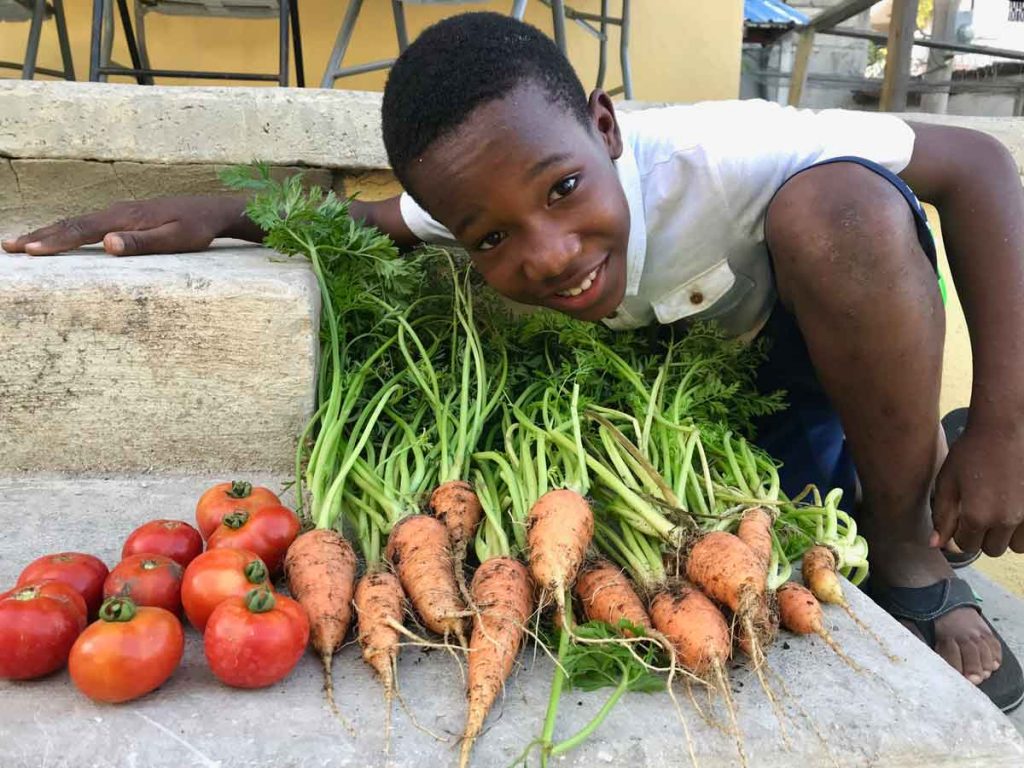
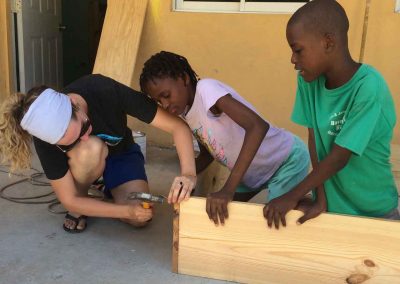
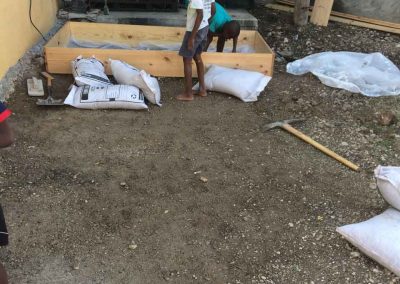
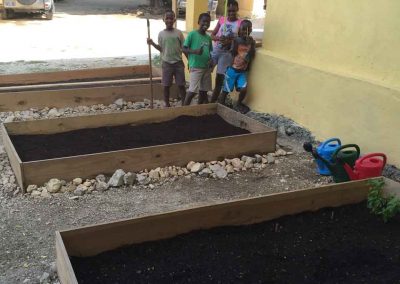
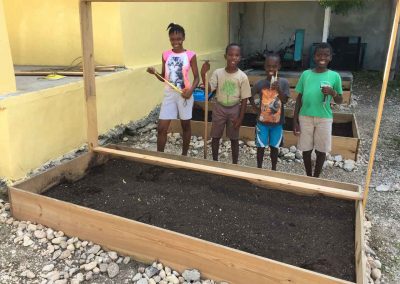
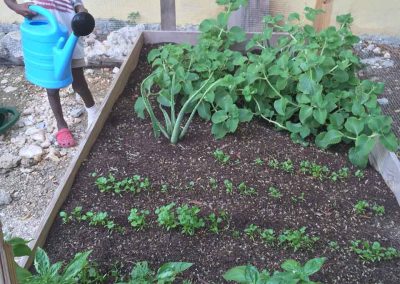
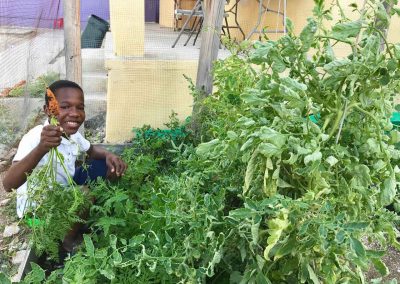
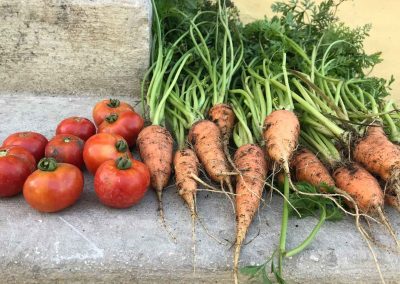
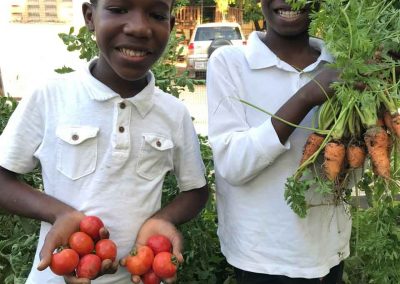
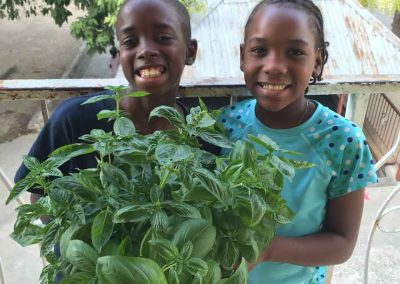
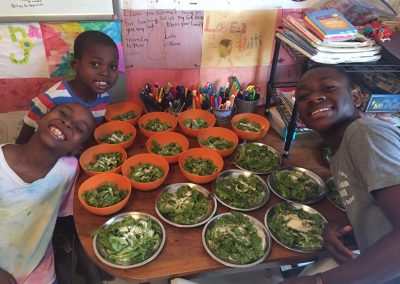
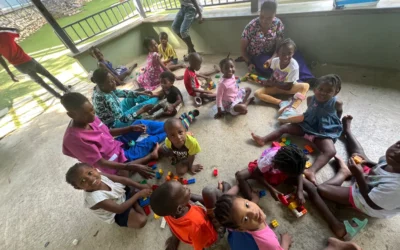


 Join a community of monthly donors
Join a community of monthly donors
SHARE ON
TwitterFacebookGoogle+BufferLinkedInPin It